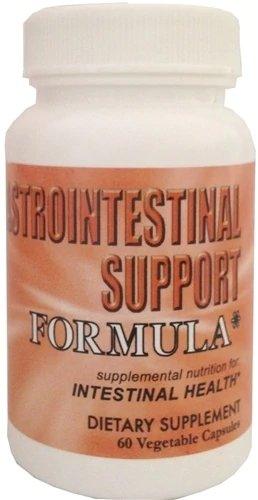No products in the cart.
How much are our genes contributing to chronic disease?
Posted by: Didrik Sopler
A lot of people think their genetic makeup decides how healthy or sick they will be. This is, however, a big misconception. Science shows that our genes only contribute 10-20% of the risk (Willett WC, 2002). Environmental factors which includes diet and life-style are the main contributors to cardiovascular disease,...
Read more

How fast can you change the bacterial flora in your GI tract?
Posted by: Didrik Sopler
Very quickly, within 24 hours of initiating a high-fat/low-fiber or low-fat/high-fiber diet the microbiome composition changed detectably (Wu GD, et al. 2011).The animal based diet supports a link between dietary fat and the growth of microorganisms capable of triggering inflammatory bowel disease. Just by making changes to the diet without...
Read more
What to believe: Why do we have contradictory research?
Posted by: Didrik Sopler
There are several reasons why some studies are contradictory.Research can purposely be designed to be misleading.The following is a good example of that. The study investigated the effects of egg consumption on endothelial function (Njike V, et al. 2010). The participants were men and women with high cholesterol, they had...
Read more
What could be a common cause of both low back pain and cardiovascular disease?
Posted by: tissuerecovery Admin
Higher intake of this important mineral shows reduced risk for metabolic syndrome.
Posted by: tissuerecovery Admin
Cancer: What supplements make sense.
Posted by: Didrik Sopler
Low grade inflammation and oxidative stress have been found to increase the risk of cancer (Suhr YJ, et al. 2005). The cell signaling component NF-kappaB involved in the inflammatory response has been implicated in the development of cancer. The natural compound curcumin has been found to reduce NF-kappaB. Research using...
Read more
Breast cancer: The influence of diet
Posted by: Didrik Sopler
The protein complex mTORC is an important regulator of cellular metabolism, growth and proliferation. Higher mTORC expression has been found in breast cancer tissue and has been associated with worse overall survival (Wazir U, et al. 2013). mTORC opposes apoptosis were dysfunctional cells are removed and may for that reason...
Read more
What are some of the reasons for tendinopathy?
Posted by: Didrik Sopler
Tendonitis, tendinopathy are very common conditions. Especially shoulder pain (rotator cuff). Tendinopathy is considered an overuse condition with a failed healing response. Research, however, is now also providing some other interesting reasons for tendinopathy(Scott A, et al. 2015). Participants in this study who had Achilles tendinopathy showed a pattern of...
Read more
Oxidative stress can affect you psychologically.
Posted by: Didrik Sopler
When patients with major depression were compared with a healthy control group it was found that the patients with depression had a significantly higher level of malondialdehyde (Bajpai A, et al. 2014). Malondialdehyde is a byproduct of lipid peroxidation and is a marker of oxidative stress. Blood levels of nitrite,...
Read more
This may be one of the reasons blood vessels get damaged.
Posted by: Didrik Sopler
Increased triglyceride levels in the blood has for a long time been recognized as a risk factor for cardiovascular disease. Why, though, has not been understood very well. This research may shed some light on the mechanism. High triglyceride levels trigger foam cell formation which recruit monocytes, a type of...
Read more
Breast Cancer: There’s a lot you can do to prevent it
Posted by: Didrik Sopler
What are some of the risk factors for breast cancer that you can do something about? Light alcohol drinking, up to 1 drink per day, has been shown to significantly increase breast cancer and also some other cancers (Bagnardi V, et al. 2013). Heavy alcohol consumption, 3 or more drinks...
Read more
These specific foods will increase your risk for depression.
Posted by: Didrik Sopler
When 87,618 postmenopausal women were evaluated for depression and 69,954 were rechecked 3 years later, it was found that food with a progressively higher glycemic index was associated with increasing odds of depression (Gangwisch JE, et al. 2015). The glycemic index is a measurement of how high a specific food...
Read more
Insulin resistance increases your risk for dementia
Posted by: Didrik Sopler
Insulin resistance is another risk factor for chronic disease. When study participants with the average age of only 40 years had cognitive tests and also a brain MRI done, the researchers concluded that hyperglycemia (elevated blood glucose) is associated with subtle brain injury, impaired attention and memory; even in young...
Read more






